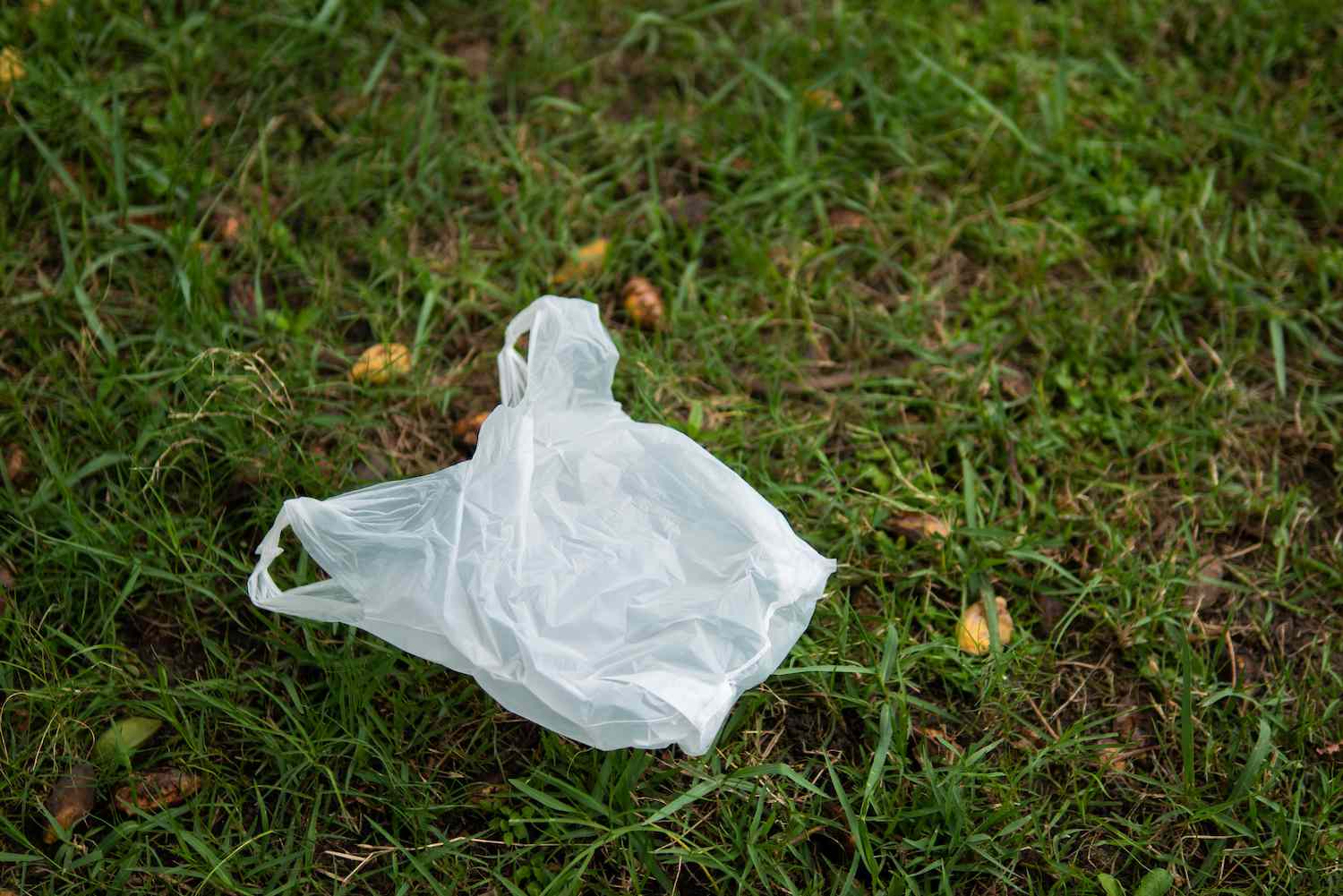
Single-use plastic baggage are a scourge on the atmosphere. Individuals alone use 100 billion of them yearly, based on the Heart for Organic Variety (CBD), which says it takes plastic baggage 1,000 years to degrade in a landfill. And even then, plastic baggage don’t break down fully. As a substitute, they photo-degrade, changing into microplastics that soak up toxins and proceed to pollute the atmosphere. Within the meantime, birds, sea turtles, and fish routinely mistake discarded plastic baggage for meals, which might trigger sickness and dying up and down the meals chain.
For these causes and lots of others, environmentally-conscious communities all over the world have banned eating places and retailers from utilizing single-use plastic baggage. As a substitute, companies and customers are inspired to make use of recyclable paper baggage or reusable fabric baggage, primarily based on the logic that they’re higher for the Earth.
California grew to become the primary U.S. state to move a plastic bag ban in 2014. Since then, six extra states have adopted swimsuit with statewide bans, and greater than 500 municipalities in 28 states with native bans, stories PlasticBagLaws.org, a web site devoted to details about legal guidelines that restrict plastic bag use.
Little doubt, the architects of plastic bag bans really feel they’re doing proper by the atmosphere. New analysis from the College of Georgia (UGA), nonetheless, suggests their efforts would possibly truly do extra hurt than good.
The reason being easy: Single-use plastic baggage aren’t truly single-use. Though customers don’t sometimes reuse them once they buy groceries, they do reuse them in different methods—as wastebasket liners, for instance. In communities the place they don’t obtain plastic baggage at shops, customers, due to this fact, search for options. Usually, meaning shopping for small plastic rubbish baggage, which will increase as an alternative of decreases the inhabitants of plastic baggage in landfills and the atmosphere.
“We all know there’s a demand for utilizing plastic baggage, and we all know, if these insurance policies go into impact, some baggage will disappear or will turn into extra pricey to get,” Yu-Kai Huang, a postdoctoral researcher on the UGA Warnell College of Forestry and Pure Sources, stated in a information launch. “So, we needed to see the effectiveness of this coverage in decreasing bag utilization general.”
Whereas earlier research have seemed on the impact of plastic bag bans on plastic bag consumption, Huang and his colleague, Richard Woodward of Texas A&M College, needed to look deeper. So, they measured plastic trash bag gross sales in counties which have plastic bag bans or taxes, then in contrast them to plastic trash bag gross sales in counties that don’t. Their findings have been stark: In California, gross sales of 4-gallon trash baggage elevated by 55% to 75% in communities with bag insurance policies, whereas gross sales of 8-gallon trash baggage elevated 87% to 110%. In the meantime, gross sales of 13-gallon trash baggage—the dimensions sometimes utilized in kitchen trash cans—remained comparatively unchanged.
The elevated gross sales are measurable not solely in {dollars} but additionally in kilos. For instance, further gross sales of 4-gallon trash baggage induced plastic consumption to extend by 30 to 135 kilos per retailer per 30 days, Huang and Woodward discovered. Further gross sales of 8-gallon trash baggage likewise induced plastic consumption to extend by between 37 and 224 kilos per retailer per 30 days.
“Carryout grocery baggage have been substituted for related sizes of trash baggage earlier than implementing the laws,” Huang wrote within the examine. “After the laws got here into impact, customers’ plastic bag demand switched from regulated plastic baggage to unregulated baggage.”
A 2017 examine by Recyc-Québec, an environmental group primarily based in Montreal, additionally suggests plastic bag bans could also be problematic. Not solely as a result of they are often reused as wastebasket liners, but additionally as a result of they’re much less energy- and material-intensive to provide.
And but, communities shouldn’t essentially rush to repeal their plastic bag bans. As a result of in high-volume shops, bans would possibly nonetheless be capable of make a constructive affect. For shops that generate at the least 326 carryout plastic baggage per day, for instance—practically 10,000 per 30 days—plastic bag bans do lead to sending fewer plastic baggage to landfills.
There is no denying that decreasing plastic demand and manufacturing is the way in which to go to curb the bigger plastic air pollution downside and bag bans might be one a part of the larger answer. Nonetheless, this examine spotlights how well-intentioned insurance policies might have unexpected drawbacks.
Concluded Huang, “There’s no clear reply for this. Whether or not the supplied free carryout grocery baggage are reused is a key to figuring out the general effectiveness of the associated grocery bag insurance policies.”
Huang and Woodward’s evaluation—which incorporates variables comparable to earnings and inhabitants density, each of which might have an effect on the quantity of trash that communities generate—seems within the journal Environmental and Useful resource Economics.